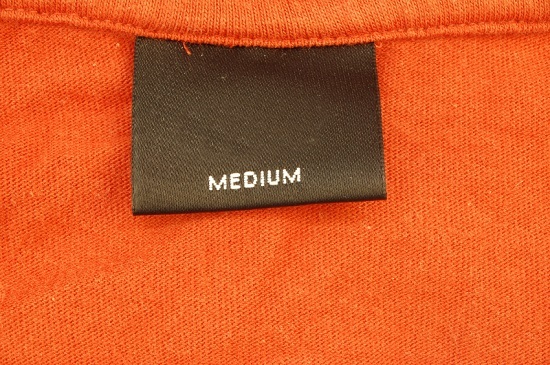When I first heard JCPenney's new tagline "When it Fits, You Feel it," I was reminded of why I don't "fit" JCPenney. It is the same reason why I believe they are struggling to be a profitable and relevant brand.
My direct relationship with the JCP brand started when I was 9 years old and carried on after college when I went to work for their corporate office in 1997. For a detailed account of this story, see expanded story here.
According to the BBC, "The average lifespan of a company listed in the S&P 500 index of leading US companies has decreased by more than 50 years in the last century, from 67 years in the 1920s to just 15 years today, according to Professor Richard Foster from Yale University." What does this mean for a company like JCPenney founded in 1902?
For starters it means they know how to survive. They have survived the Great Depression, two additional recessions and a highly competitive marketplace both online and off. Survival sounds like something commendable and it is when it is done in moderation. Yet when a company operates in survival mode for a long period of time the company culture is centered on reacting to the "next" thing. And when there is not a next big thing to react to; they create one. This is what I experienced at JCP and exactly why consumers do not know what do with JCPenney. They always seem to be going through some sort of identity crisis. After the death of James Cash Penney, they have struggled to "owe" their own culture in a consistent favorable way that encourages both consumers and employees to be loyal to them.
There are two lessons they have not learned yet:
1.How to engage younger generations without alienating their core clientele.
2.How to "relate" in general. Rapid change in the marketplace has created a demand for one-to-one relating as both the means to get work done and the ability to maintain and grow a customer base.
The ability to proactively adapt to change increases significantly when the focus is on thriving as opposed to constant attention on what needs to be done to survive the next crisis. Thriving means optimized systems for workflow, communication and innovation. Thriving means making plans for the future instead of waiting for it to take place. Most importantly in order to thrive, every person involved with the company both inside and out must believe their interaction with the brand enables them to thrive as well. This can't be done when a few people are making decisions that affect the whole. This is done when true conversations are taking place through cross-sections of employees, managers, vendors and customers with a system in place for implementation based on what is learned. Culture is created through conversation. Relationships are created through conversation. This is what sets companies like Patagonia, Chipotle and Google far ahead of their peers.
If JCPenney wants to be a relevant brand of the future, the conversation must evolve past variables of price, quality, quantity and convenience. Store closings and new marketing messages serve only as a Band-aid for a brand that is in needs of surgery on its most vital organ - their people. When their employees believe in their brand they will have a brand that consumers want to patronize. Relationships with customers can't exist if there are not true processes of relating internally.
As I reflect on my own disadvantage at JCPenney, I wonder now who is at a greater disadvantage? The trusted and knowledgeable worker who does not have a voice or the CEO who doesn't act on what the worker already knows? Today's CEO can't lead with their own instincts. Perhaps this is what got Ron Johnson in trouble. He did not identify and involve the customer first. He implemented changes without a culture in place to sustain the change. Today's best leaders are those who cultivate a team of experts who together can account for the how, what, when, and why of implementation. This is done with careful consideration to each team member's strengths while identify variables of support and conflict in the planning stage.
Why do I care about what happens to JCPenney? Despite their dysfunction, their story is a part of mine. The brand is like a family member that I have outgrown; I can only love them from a distance because I can't really relate or understand what they are doing. If my mother did not remind me to "call on" my JCP family member I probably never would. I can't even remember the last time I was in a store but I will check out their website from time to time. The crown jewel of my bedroom is a metal framed canopy bed I found on clearance on their website. When my friends ask where it came from, they are shocked to learn it is from JCPenney.
When James Cash Penney talked about why he established his stores in small towns in the Midwest he said it was because he knew how to relate to the people who would populate the stores; they were like him and he knew how to serve them. J. C. Penney the man knew how to connect to people. JCPenney the company does not. This is what the "about us" says on their website: "J. C. Penney Company, Inc. (NYSE: JCP), one of the nation's largest apparel and home furnishing retailers, is undergoing a resurgence to become America's preferred retail destination for unmatched style, quality and value."
Really? How many other brands could say the same thing? Does this make you want to shop at JCPenney? What would? In order for brands to be relevant to consumers they need to stop telling us what they are about and show us.
To the leadership team at JCPenney, I say to you, "Your tag is hanging out. Tuck it in, take a look at what is going on inside and pull it together. I want to see you at family dinners again."


